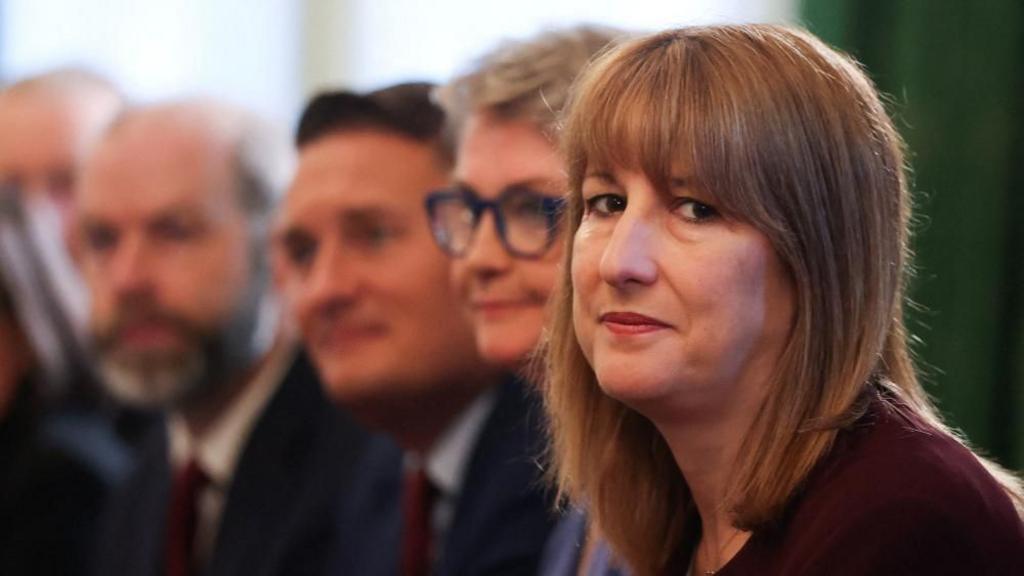BBC News understands that Chancellor Rachel Reeves has informed her cabinet counterparts that access to the Treasury’s emergency funds will be restricted in the lead-up to the budget announcement.
The £9 billion Treasury Reserve, intended for “genuinely unforeseen, unaffordable, and unavoidable pressures,” has recently been used to finance increased public sector pay and compensation settlements.
In a formal communication to ministers, the Chancellor stated that the Treasury would only consider allocating reserve funds to departments that have demonstrably maximized their internal savings.
This directive arrives less than three months ahead of Reeves’ scheduled unveiling of Labour’s Budget, amid growing demands to stimulate economic growth while maintaining fiscal responsibility.
The objective of limiting access to the reserve is to ensure Reeves adheres to her fiscal rules by curbing government borrowing and maintaining departmental spending within the parameters established at the June Spending Review.
Furthermore, she cautioned that any funds drawn from the reserve would be subject to repayment.
The Chancellor is expected to detail the government’s taxation and expenditure plans, covering sectors from healthcare and education to infrastructure and defense, during the Budget presentation on Wednesday, November 26.
Economic analysts have previously suggested that Reeves may need to raise taxes or implement spending reductions to comply with her fiscal mandates, which include funding day-to-day government operations through tax revenue rather than borrowing by the fiscal year 2029-30.
Rain Newton-Smith, Director-General of the Confederation of British Industry, argued that the Chancellor “must commit to tax reform, not just tax rises” in a recent opinion piece published in the Guardian.
Businesses have been contending with ongoing cost challenges arising from April’s increases to employer National Insurance Contributions and the National Living Wage, compounded by persistent inflationary pressures.
“The Chancellor cannot raid corporate coffers again, so she must look elsewhere, embracing long-term strategic tax reforms rather than maintaining a slavish adherence to manifesto promises on tax or ideas based on the world as it was 18 months ago,” Ms. Newton-Smith asserted.
Reeves informed her colleagues that the focus during the Autumn period would be on “reducing inflation, controlling spending, and kickstarting growth.”
Referencing recent instability in bond markets “in many advanced economies,” she stated at a cabinet meeting on Tuesday that “stability is more important than ever to underpin growth in a volatile global environment, and that means living within our means.”
The Chancellor conveyed to her colleagues: “I do not think there is anything progressive about spending £100 billion a year on paying off debts accrued by previous governments.”
Reeves added that she would prefer to allocate more of those funds to “cutting hospital waiting lists, tackling illegal migration, and keeping our country safe.”
While this stringent message was conveyed to the cabinet, it was also directed at the financial markets and her own backbench MPs.
Speaking in the Commons on Tuesday, she concurred that Labour backbenchers should “resist the temptation to duck tough choices on spending.”
The Spending Review had already reduced the Reserve from its typical level of approximately £14 billion per year, with the Institute for Fiscal Studies cautioning that it “left little space to deal with unforeseen pressures.”
Financial projections regarding the sum that Reeves needs to secure in the upcoming budget to meet her self-imposed borrowing rules vary significantly.
Some estimates place the figure at around £25 billion, while an assessment from the National Institute of Economic and Social Research suggests a figure as high as £50 billion.
In a recent exclusive interview with the BBC, Reeves downplayed the larger figure and stated that she aimed to “get the balance right” in the Budget.
Reeves has established two rules on government borrowing, which she has repeatedly described as “non-negotiable.” These are:

